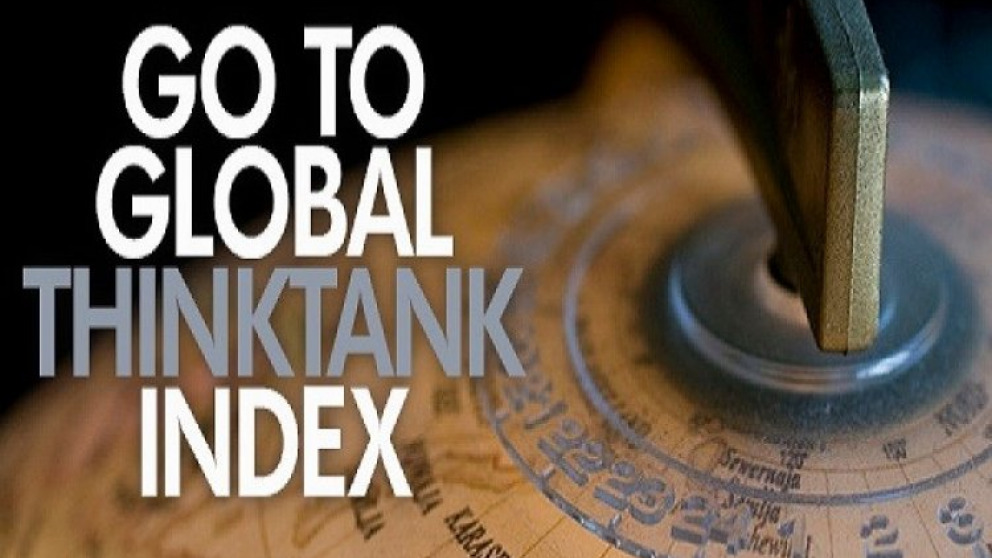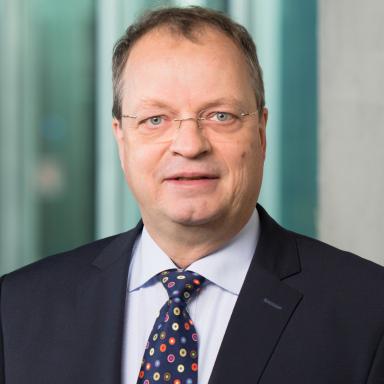Headline:
2016 Global Think Tank Ranking: IASS ranks among Top Western European Think Tanks

Chatham House (UK) is Think Tank of the Year 2016, while Brookings Institution (US) remains the most influential. The 10th annual ranking compiled by the Think Tanks and Civil Societies Program (TTCSP) of the University of Pennsylvania was launched on 27 January 2017 in Berlin. It serves to identify and to acknowledge the world’s leading think tanks. The event was hosted by Mercator Foundation in the context of Germany's G20 presidency, with the Institute for Advanced Sustainability Studies (IASS), the Center for International Governance Innovation (CIGI), and Ecologic Institute as co-organizers.
The Global Go To Think Tank Ranking 2016 lists the IASS among 125 top Western European think tanks as 103rd. Altogether 23 German think tanks are ranked on this list for Western Europe. The top think tanks were selected in a lengthy ranking process: 6,846 think tanks catalogued in the TTCSP’s Global Think Tank Database were contacted and more than 2,500 journalists, policymakers, public and private donors, and functional and regional area specialists participated.
At the presentation in Berlin, Philipp Wesemann and Kirsten Hommelhoff of the Mercator Foundation introduced the theme and explained the perspective of a philanthropic supporter, initiator and founder of various think tanks, and Martin Jänicke of IASS Potsdam provided examples of good practice in translating expert knowledge into policy advice and the role of think tanks in the international diffusion of policy success. In addition to providing data, information, facts, and analysis, think tanks are expected to formulate policy options and recommendations, build bridges and provide 'translation' between science, society and policy-makers, and help with implementation, follow-up and accountability.
The Global Think Tank Ranking was summarized by R. Andreas Kraemer of IASS, CIGI, and Ecologic Institute, who also provided critical remarks and explanations concerning the ranking process and biases that persist, and highlighted the main rankings of German think tanks. He also sketched the evolution of the T20 network – Think Tanks in the G20 countries – since its inception in 2012.
T20 – Think Tanks in the G20 – as ‘honest brokers’
T20 is unique among the various G20 engagement groups in that think tanks provide evidence-based input to G20 that is not based on own economic interest; they are 'honest brokers' of experience and ideas, not lobbyists. They provide important networking services and help communicate G20 challenges and decisions.
Simon Marr of the G20 Sherpa Team in the German Chancellor's Office laid out their expectations of T20 and the input it provides to Germany‘s G20 Presidency in timeliness, relevance, style and practicality for policy-making and diplomacy. Axel Berger of the German Development Institute (GDI-DIE) explained the fluid membership of T20 up to now, and the arrangements made by the GDI-DIE and the Kiel Institute for the World Economy (IfW Kiel) as T20 coordinators during the German presidency. A challenge for T20 is to build more permanent structures for information and coordination, and to dispel mistrust in some populist quarters that regard think tanks as suspect elite institutions.
T20 work is performed in various Task Forces. Brigitte Knopf of the Mercator Research Institute on Global Commons and Climate Change (MCC Berlin) and managing coordinator of the T20 Task Force on Climate Policy and Finance, gave insights into its work in progress. Involving almost all G20 countries, the Task Force is drafting an overarching narrative on the importance of carbon pricing as a driver of innovation, efficiency and growth, as well as four T20 Policy Briefs on specific challenges. Aiming to involve all G20 countries, Task Forces also reach out to non-G20 countries.
Heino von Meyer, head of the Berlin Centre of the Organisation for Economic Co-Operation and Development (OECD), described functions and aspects that make the OECD a think tank, and its role in supporting the G20 process. It can provide data-based monitoring for follow-up to G20 resolutions and facilitate policy learning and the diffusion of good practice.
Argentina will follow Germany in the presidency of the G20. As Daniel Gregosz, Coordinator of the International Economic Policy Programme at the Konrad Adenauer Foundation (KAS) and an expert from the KAS regional programme on Latin America explained, the hand-over from Germany to Argentina will not be smooth. During the past decade, Argentina was largely cut off from international institutions and processes, and even trade and investment. Capacities for international engagement and coordination have eroded in government as well as in think tanks, and there is no overlap between the German G20 agenda and that likely priorities of Argentina.
The ensuing discussion, moderated by Camilla Bausch of Ecologic Institute concluded with a recognition that think tanks are a manifestation of an emerging international civil society that can provide critical partnership to policy coordination and policy learning among governments such as in the G20. Participants stressed that think tanks in Argentina should be helped to prepare for their role in coordinating and animating the T20 network of think tanks during the forthcoming G20 Presidency of Argentina.

